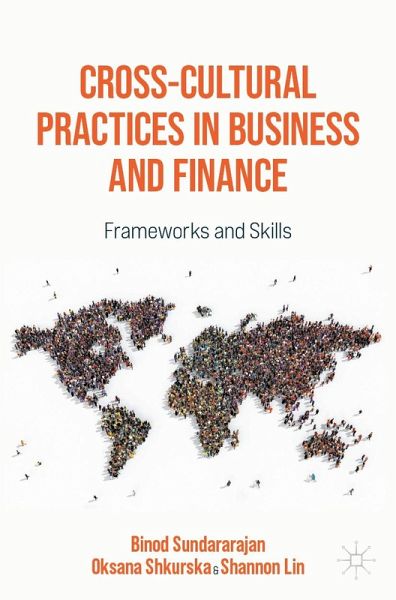
Cross-Cultural Practices in Business and Finance (eBook, PDF)
Frameworks and Skills
Versandkostenfrei!
Sofort per Download lieferbar
68,95 €
inkl. MwSt.
Weitere Ausgaben:

PAYBACK Punkte
34 °P sammeln!
This textbook explains the effects of culture on business practices and introduces students to the cross-cultural and international dimensions of working internationally, exploring topics across both business and finance. Given that doing business across cultures has become the norm in modern companies, managers must develop and acquire the skills to lead effectively in cross-cultural contexts. This textbook will help you to attain those skills through its practical and situational examples involving countries and regions around the world while learning about the cultural and business practic...
This textbook explains the effects of culture on business practices and introduces students to the cross-cultural and international dimensions of working internationally, exploring topics across both business and finance.
Given that doing business across cultures has become the norm in modern companies, managers must develop and acquire the skills to lead effectively in cross-cultural contexts. This textbook will help you to attain those skills through its practical and situational examples involving countries and regions around the world while learning about the cultural and business practices of people from different backgrounds, ethnicities, diversities, educational levels, and social strata and hierarchies. It covers important aspects of doing business across cultures/countries, such as the role (and importance) of technology adoption, different organizational forms, financial and accounting approaches in different parts of the world, negotiating practices, ethics across the globe, and working and studying abroad. Further, it equips readers with useful knowledge about cross-cultural nuances beyond the usual discussions of high vs. low contexts, power distance, uncertainty avoidance, and such dimensions of cross-cultural interactions.
The varied experiences of the authors - having lived and worked in many countries - along with their backgrounds in linguistics, communication, and financial accounting provide unique perspectives not available elsewhere. With its case studies, end-of-chapter exercises, as well as multiple-choice and short-answer questions, this broad, yet thorough textbook will guide you in leading with cultural intelligence.
Dieser Download kann aus rechtlichen Gründen nur mit Rechnungsadresse in A, B, BG, CY, CZ, D, DK, EW, E, FIN, F, GR, HR, H, IRL, I, LT, L, LR, M, NL, PL, P, R, S, SLO, SK ausgeliefert werden.
Alle Preise in Euro und inkl. der gesetzl. MwSt. | Innerhalb Deutschlands liefern wir preisgebundene Bücher versandkostenfrei. Weitere Informationen: bitte hier klicken
Support
Bitte wähle dein Anliegen aus:
Rechnungen
Bestellstatus
Retourenschein
Storno












